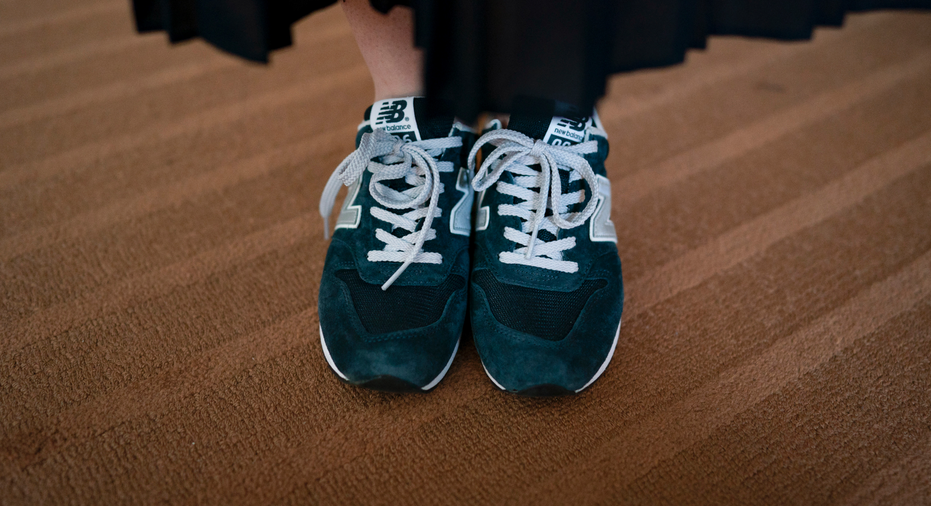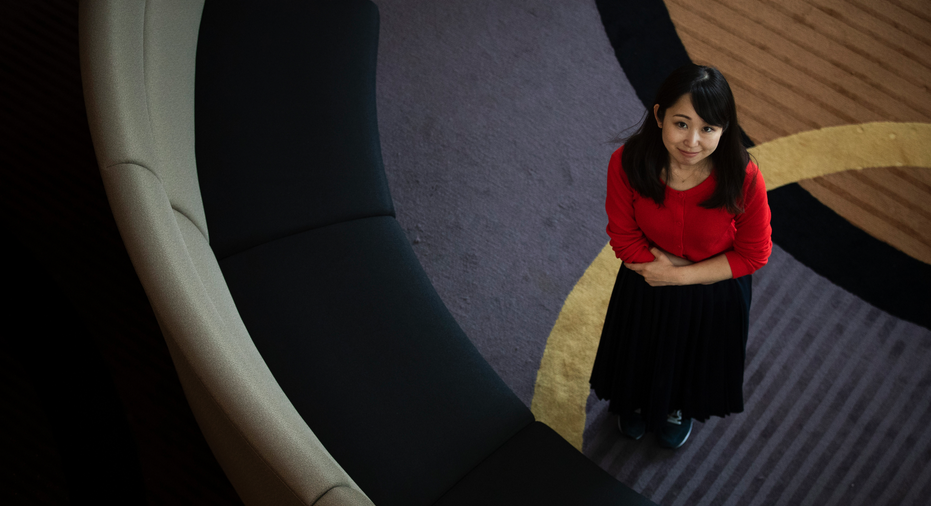In #MeToo era, Japanese woman slams #KuToo heels dress codes
Yumi Ishikawa, a 32-year-old actress and writer, wears a pair of blue New Balance sneakers while posing for photos Wednesday, June 5, 2019, in Tokyo. As the world enters the #MeToo era, Japanese women are saying, "No," to high heels in the rising #KuToo movement, a play on the words for "shoes" and "agony." Ishikawa, who started the movement, handed the labor ministry a petition in protest this week. (AP Photo/Jae C. Hong)
TOKYO – Japanese women are saying, "No," to high heels in what's been dubbed the #KuToo movement, a play on the words for "shoes" and "agony" and allusion to the #MeToo hashtag.
"This is about gender discrimination," Yumi Ishikawa, 32, an actress and writer, who started the movement, said in an interview with The Associated Press on Wednesday.
"It's the view that appearances are more important for women at work than for men."
Like makeup on a face, a girl's legs look better in heels, she said sarcastically, her feet in blue sneakers.
Earlier this week, Ishikawa handed the labor ministry a petition that she began online, protesting many companies' requirements that their female staff wear pumps and heels. The petition had collected 18,856 signatures by then.
When asked about the petition in a parliamentary committee hearing on Wednesday, Takumi Nemoto, the minister of labor, appeared to defend heels-on-the-job, saying they may be needed because of customary social expectations in some occupations.
Employees' health and safety need to be protected, but work is varied, said Nemoto, who oversees the country's workplace reforms.
The debate over heels began in January with tweets by Ishikawa about her frustration over being required to wear 2-inch heels for her part-time job as a receptionist at a funeral parlor.
"I like my job right now but wearing pumps is really so hard," one of her tweets said. "Of course, if you want to wear them, please go ahead."
Japanese laws guarantee gender equality, but critics like Ishikawa have long complained such ideals aren't playing out in real life.
Men in Japan are, of course, not required to wear heels, though many do wear business suits, crisply ironed dress shirts and ties. For hotter summer months, many offices have an official "cool" short-sleeves, no tie dress code. Many Japanese also take off their street shoes and wear slippers or sandals while inside their offices.
Japan ranked 110th in the latest World Economic Forum ranking on gender equality, which benchmarks 149 nations on the treatment of women, such as educational attainment and health hazards.
Women elsewhere, including the U.S., Canada and Europe, have also protested dress and makeup requirements and having to wear heels. The red carpet at Cannes, infamous for its strict dress code, has seen celebrities walking barefoot in defiance.
Ishikawa said she hoped to win over fashion designers to make more comfortable footwear that's acceptable as formal wear.
She sees the #KuToo movement as a way to raise awareness about sexism.
"Shoes are so everyday," she said. "People can more directly see the issues of people's dignity and rights, and so shoes may lead to a better world."
___
Follow Yuri Kageyama on Twitter https://twitter.com/yurikageyama
On Instagram https://www.instagram.com/yurikageyama/?hl=en





















